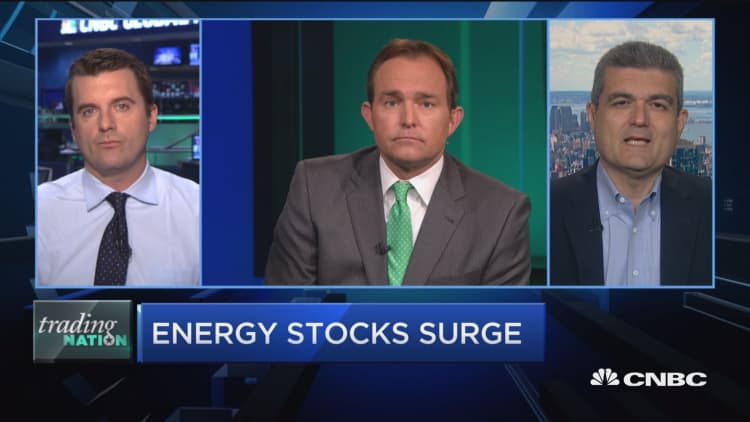
Oil is surging off of the news OPEC has agreed to curb production. But somehow, those who have held on to the most popular oil-tracking ETF have still lost money this year.
On Thursday, crude hit its highest level in more than a month, and the commodity is now up 29 percent in 2016, a huge rally that followed two years of brutal declines. But while the USO ETF is up nicely over the past two sessions, it is still down about 1 percent on the year.
With a market value of more than $3 billion, the USO is easily the largest oil exchange-traded product. And while it tracks oil nicely for short-time periods, it lags substantially when held for a month or longer.
This is because the USO does not invest in oil directly, but through the futures market, in which oil futures that mature later are worth more. As the ETF effects a massive sale of a given month's contract in order to buy the next month's, it is forced to pay more for the contracts being bought than it receives for the contracts being sold, thus levying a hidden toll on the fund's holders.
In an earlier interview with CNBC, John Love, CEO of the ETF's manager, United States Commodity Funds, said ignoring the costs of investing in oil would be silly, akin to "budgeting for a house payment without considering the costs of home insurance and tax."
Still, the USO's website does not make clear that the oil futures curve threatens to have a profound impact on crude prices. And given the USO's growth, the question is whether its owners know exactly what it is that they own.
Indeed, as oil enjoys a big boost this week thanks to a surprising event, those who check their accounts expecting to see that the USO has delivered serious profits this year are set to be sorely disappointed.






